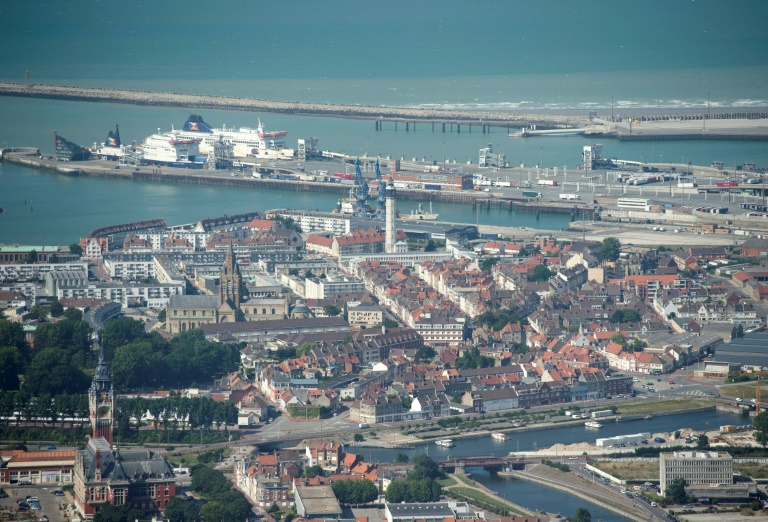‘No bottlenecks’: France’s bustling Calais port ready for Brexit
Some 70 percent of trade between Britain and the EU goes through Calais and Dunkirk, with around 12,000 trucks transiting each day
. ©AFP/File PHILIPPE HUGUEN
Calais (France) (AFP) – Officials at the port of Calais, the main ferry crossing point between England and France, said Thursday they are looking forward to life after Brexit with “serenity”, confident of having made all the necessary preparations.
“We really think we have planned everything: we’ve done dry runs, created parking areas, invested 13 million euros ($15.6 million), worked with customs, (and set up) a smart border,” port president Jean-Marc Puissesseau told AFP.
“We regret Brexit, but we don’t fear it… We are serene because for three years now we have been able to perfect everything we’ve prepared” for Britain’s exodus from the European Union, Puissesseau said.
“If every haulier respects the customs declarations, there will be no reason for this to go badly,” he said.
The first trucks to cross over from southern England under the new procedures and arriving by ferry are expected in Calais on Friday, hours after the first arrivals overnight via the Channel Tunnel.
France’s new high-tech “smart border” is designed to keep goods moving smoothly along the world’s busiest shipping route.
Hauliers will be subjected to a risk analysis on the basis of declarations made online, and upon their arrival in Calais customs will give them either a green light waving them through or an orange light to stop them.
Asked about the risk of new tailbacks after thousands of trucks were blocked on the motorway in mid-December, Puissesseau said there would be “no bottlenecks in January”.
“With the British having stockpiled so much, they will necessarily import less in January, which is also traditionally a quiet month with little activity,” he said.
“That will allow us to quietly fine-tune everything we have prepared… and correct any details we haven’t anticipated.”
Some 70 percent of trade between Britain and the EU goes through Calais and Dunkirk, with around 12,000 trucks transiting each day.
Disclaimer: Validity of the above story is for 7 Days from original date of publishing. Source: AFP.


